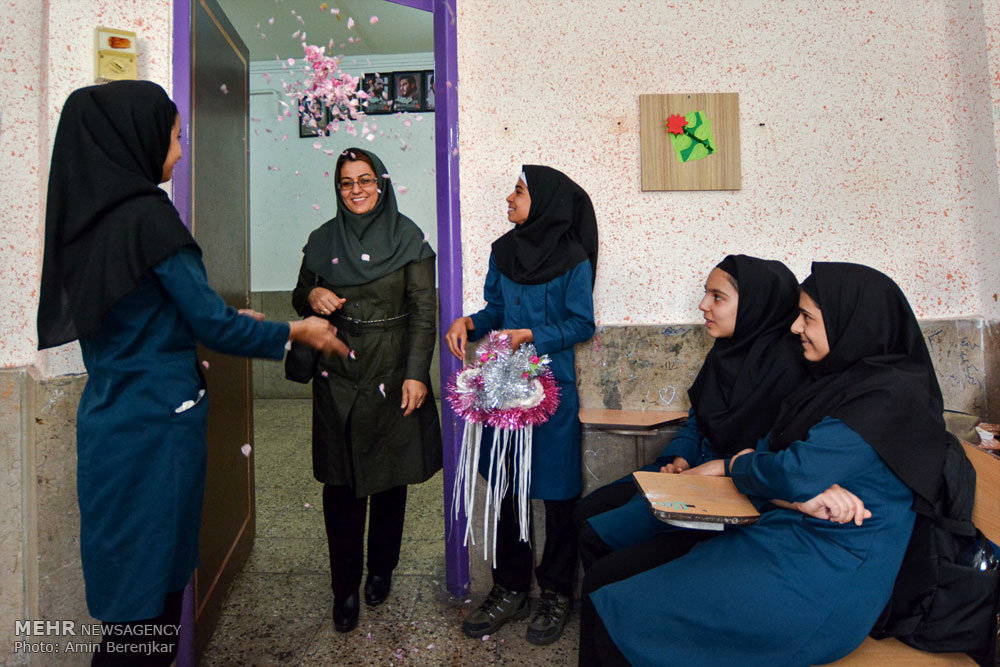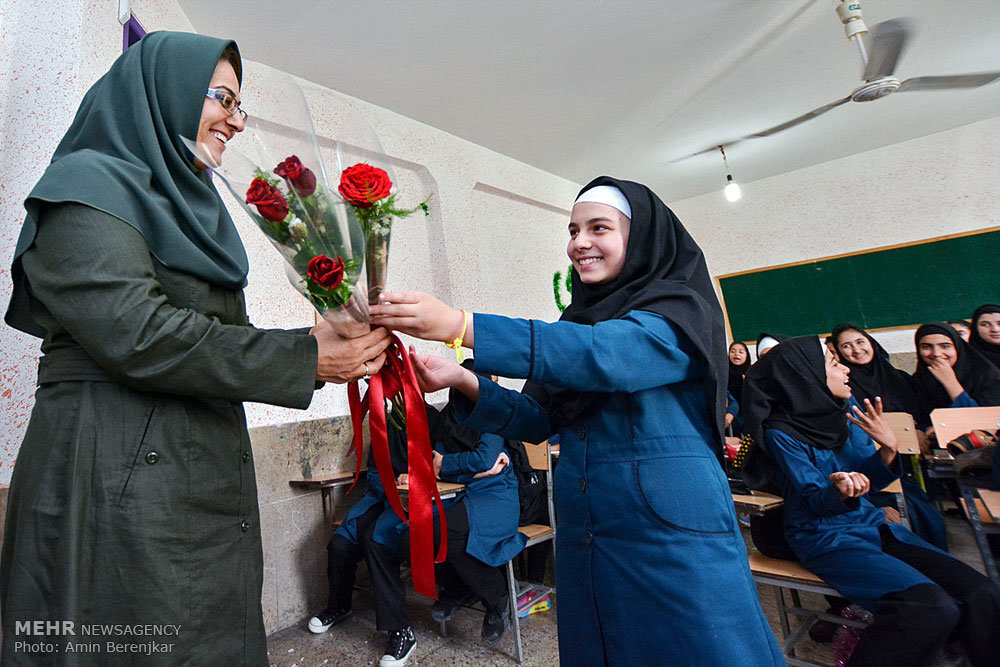Today coincides with the anniversary of the martialists of Morteza Motahari, one of the most important ideologicalists of the Islamic Revolution.
In Iran, Teacher’s Day is a special day to honor teachers and to appreciate their efforts. Iranians mark the opportunity by paying homage to teachers across the country.
Teacher Day is a special day for teachers to appreciate and can include special contributions in specific field areas and celebrations to honor them with community tones of education.
Like many parts of the world, education is sacred in Iran, maintaining an immortal respect for those who, both old and young, have worked so hard to enhance their knowledge, and honour them with small gifts and flowers on this day.
Teachers are architects of society, and without them, society cannot follow the path of progress. Teaching is art, and teachers are artists. Knowledge, contemplation and creativity are the characteristics of teachers who follow the science of the day.
Because of the spiritual influence of teachers, students are heavily influenced by them, so they can even change the fate of their country. Most people owes success to their teachers.

Today, Iran is celebrating Teacher’s Day, commemorating Ayatollah Morteza Motahari, who was assassinated on May 1, 1979.
The 12th day of Ordibehesht, the second month of the Iranian calendar that fell on May 1 this year, was designated as Iranian Teacher Day to commemorate Iranian clergy, philosopher, lecturer and politician Ayatollah Morteza Motahari. Motahari is believed to have an important impact on the ideology of the Islamic Republic, among other things.

Ayatollah Morteza Motahari was one of the most prominent intellectual and cultural figures of the present day. With a very high order of Islamic teaching, he met countless needs of the current generation. With innovative ideas, creative ideas and a proper understanding of Islam, Ayatollah Motahari played an important role in enlightenment among enthusiasts, especially teachers and scholars.
Motahari was one of the main axes of coordination between Ulema and university professors in exile in Imam Khomeini. He has always been considered a very knowledgeable expert in Islam and a powerful philosopher who knew the conditions of the time.
The recognition of the younger generation is a key purpose for Motahari, and he has written so many books for them, including “Dastan-e Rastan,” which won a UNESCO award in 1965.
Motahari has also written many books on Islam, Iran and historical topics. He has mainly worked on lectures on Islam rather than writing books. However, after his martialism, some of his students worked to publish these lectures as books to write and manage them.
He served as director of the Ministry of Teaching in Theology and Islamic at the University of Tehran. At the time of his assassination, he was chairman of the Constitutional Council of the Islamic Republic in Iran and a member of the Revolutionary Council.
Because of his activities, he was favoured by revolutionary people and hated by counterrevolutionary groups such as the Furqan group. On May 1, 1979, Morteza Motahari was assassinated in Tehran by gunshots after leaving a late meeting at Yadra Sabi’s house. The Furqan group claimed responsibility for the assassination.
MNA

